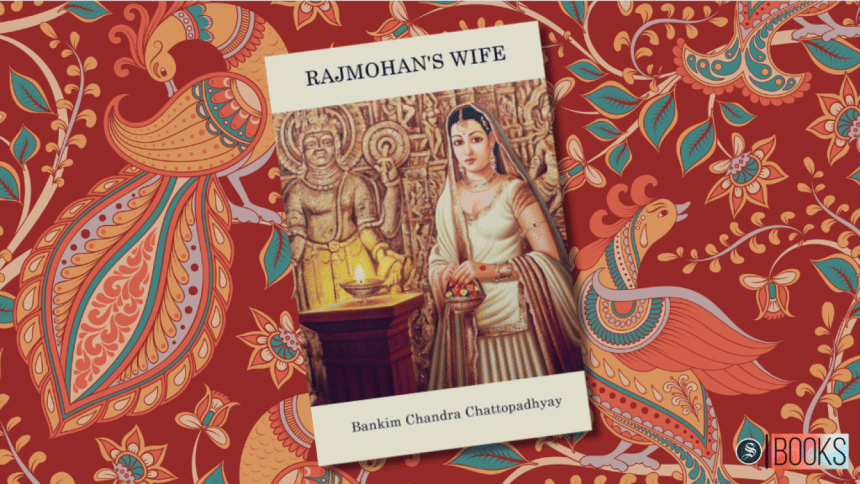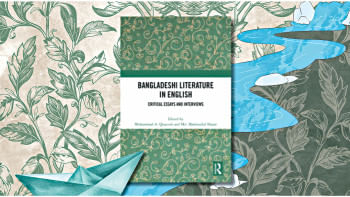Whispers of history: Revisiting ‘Rajmohan’s Wife’

Rajmohan's Wife (Indian Field, 1864) is the first English novel written by Bankim Chandra Chattopadhyay. For someone interested in Bangla classics, it was an exquisite find and I was immediately intrigued to discover its portrayal of 19th century colonial Bengal in English, and that too by Bankim. As Bankim is known as a pioneer of Bangla literature and Indian nationalism, I was already familiar with his more popular novels, such as Durgeshnandini (1865), Kapalkundala (1866), Krishnakanta's Will (1878), and Anandamath (1882). However, Rajmohan's Wife came as somewhat of a surprise to me.
While Michael Madhusudan Dutt is famous for his tragic downfall in his venture of assimilation into English culture and literature, writers like Bankim too, were captured by the charm of Englishness. Reportedly, Bankim found his comfort in expressing in English (Amitrasudan, 70). This interested me to read or, more accurately, gulp down this incredibly illuminating book in one sitting.
The history of the novel being published, too, is surprising, as the author himself neglected the existence of the novel. Despite being Bankim's debut novel, it wasn't published as a book before the author passed away. Rather, the novel was accidentally published by the binder of the journal, The Hindu Patriot, leaving out the first three chapters of the novel. Later on, Brajendranath Banerjee, who noticed the binding fault, also discovered an incomplete translation of the book by Bankim himself. He translated the missing chapters into English, leading to its latest publication in 1935 following its serialised publication back in 1864.
I wouldn't keep the book on top of my "favourites" list of Bankim's work, but it was a subtle and fascinating read given that it consisted of such a compelling narrative. The author crafted the novel in an incredibly interesting way, with a gripping description of the little things defining Bengal. Starting with "My dear reader" created a conversation with the audience, keeping me immersed. The use of Bangla terms where needed in the novel was also something that kept me engaged and absorbed within the narrative.
However, alongside the descriptive narrative of Bengal and the mesmerising picturisation of the village, a nationalistic side too could be found infused into the novel. The conversation between Mathur and Madhav Ghosh bears a portrayal of resistance against colonial assimilation. There is also a profound touch of Bengal mysticism through the symbolism of the characters. Purity, honour, and innocence are perfect words to describe the protagonist, Matangini, who is Rajmohan's wife, and it seems like Bankim intentionally named her Matangini after a Hindu goddess.
The title of the book being Rajmohan's Wife, instead of the name of the protagonist Matangini, did remind me of the systemic repression against subcontinental women. Regardless of any symbolic portrayal of nationalism or pseudofeminism, the title of the book brightly reflected on the character with each of her actions. Matangini practically worshipped Rajmohan, a sufferer of acute insecurity, jealousy, and toxic masculinity, in the name of him being her husband.
Questions might arise about the portrayals of remaining female characters in the novel, starting from the very first chapter to the unfortunate fate of Matangini, but the author certainly put forth a mirror that reflected 19th century Bengal. Nevertheless, the portrayal of women and other characters in a few of Bankims novels always felt orthodox to me, despite the author's visible attempt to portray them as exceptional. But among all the other major and minor female characters, including the protagonist herself, Kanak is the one who must be mentioned exclusively. I wished to see more of Kanak in the main storyline but, like many other prospective characters of Bankim, Kanak too was sidelined.
One might find that the essence of English romanticism among Bangla classics and Rajmohan's Wife was no different. As for the narrative, it was a refreshing read until the conclusion left me unsure of whether to be satisfied or not with such an ending.
Dola Saha is struggling with procrastination. Send help at [email protected]

 For all latest news, follow The Daily Star's Google News channel.
For all latest news, follow The Daily Star's Google News channel. 









Comments